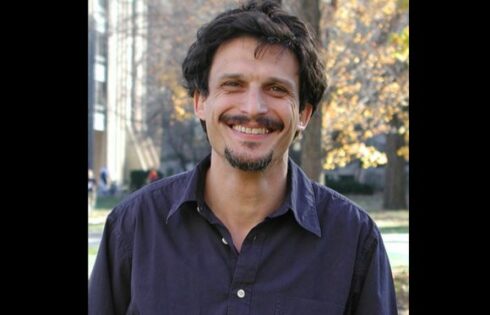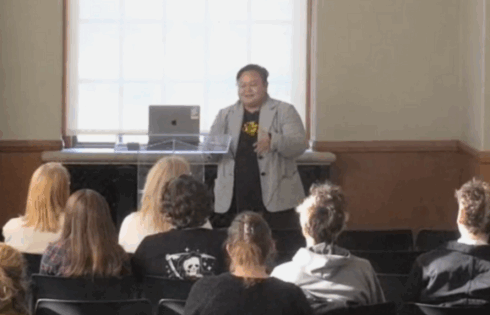
TRENDING: As growing criticisms argue the medical field discriminates against physicians with disabilities by failing to provide them proper accommodations, some physicians ask: ‘What about the patients?’
“Ableism is entrenched in the culture of medicine and represents bias against and devaluation of physicians with disabilities,” wrote Dr. Michael Quon in a recent issue of JAMA, the American Medical Association’s journal.
Quon, a doctor in the University of Ottawa’s Department of Medicine, is a disability advocate who struggled to return to his profession after suffering a traumatic brain injury in 2015.
In his article he claimed that although current policy recommendations allow physicians greater flexibility for tending to their own health, such recommendations fail doctors with physical, psychological, or cognitive disabilities requiring more extensive accommodations.
“Ableism is a social prejudice that defines persons with disabilities by their disabilities and characterizes them as being inferior to those who do not have disabilities,” Quon wrote.
Future recommendations, he wrote, should include the removal of “barriers to accessibility” and should “apply best practices of confidential and adequately funded accommodations.”
Quon’s article was one of several pieces in recent months addressing alleged ableism in medicine to appear in the American Medical Association’s flagship journal or one of its related publications.
Collectively, the string of articles argue the medical field discriminates against physicians with disabilities by failing to provide them with proper accommodations such as more flexible work schedules, physical changes to buildings, and assistive technologies. As a result, the articles claim, these physicians feel devalued personally and professionally.
For example, a research letter published via JAMA Network Open highlighted how Stanford Medicine faculty, students, trainees, and staff with disabilities are less likely to feel connected to their institution’s mission or feel valued by their institution.
Dr. Lisa Iezzoni, author of an invited commentary for JAMA Network Open regarding perceived and structural ableism in the medical field, wrote that addressing such concerns “could attract and maintain more health care professionals and trainees with disabilities” and subsequently benefit patients.
Yet, not all physicians are onboard with the idea that the medical field is inherently ableist.
Dr. Clayton Baker, an internal medicine physician and former clinical associate professor of medical humanities and bioethics at the University of Rochester, told The College Fix in an August telephone interview: “I’m not sure that [Quon’s] fundamental premise is entirely true.”
“In terms of something that could really be actionable, I found the language of his paper to be extremely vague,” Baker said.
These pieces also have spurred some physicians to ask: “What about the patients?”
This was the question posed by Dr. Russ Gonnering, retired ophthalmic plastic and reconstructive surgeon and author of the Critical Thinking in Healthcare Substack, when asked about Quon’s article in an August telephone interview with The College Fix.
“Where does the patient fit in?” he asked. “If these accommodations are needed even for a physician who has cognitive impairment, is the patient…[told] ‘Your doctor may not be up to snuff on things, but we’re going to make you see him anyway?’”
“I mean, it’s something that’s so bizarre to me…that I almost wonder why we’re even talking about this,” he said.
Dr. Steven Kritz, a retired physician who now serves as the chair of an institutional review board at a not-for-profit health care agency, similarly told The College Fix in a telephone interview he believes this emphasis on combating alleged ableism in medicine is “getting away from the fact that the whole idea of having people go into medicine is so that they have the skill set and the ability to take care of patients.”
“I did rural care for twenty years,” Kritz said. “It was more grueling than my first year as a resident, which is usually considered the ultimate hazing.”
In rural care practice, he said, “we’re in a situation where on a regular basis you were called upon to make decisions about whether people lived or died.”
“There’s a skill set,” he said. “There’s a certain physical capability.”
Of the physicians interviewed by The Fix, none inherently were opposed to allowing physicians with disabilities to practice medicine.
Gonnering and Baker even highlighted examples of physicians with disabilities that managed to become assets to their field, such as Charles Krauthammer, a psychiatrist and Pulitzer Prize winning political commentator who became paralyzed following an accident while in medical school.
Yet, all agreed that sometimes a disability can limit the type of work a physician can do.
“I was an ophthalmic plastic surgeon,” Gonnering said. “When I herniated a disc in my neck and I lost the fine motor control in my dominant hand, I knew it was time for me to stop doing surgery. … I didn’t expect that the patient was going to put up with substandard results because of my disability.”
Consequently, Gonnering said he went on to work for the remainder of his career in a non-surgical capacity.
However, both Gonnering and Baker noted some of the JAMA pieces lacked clarity regarding whether certain types of disabilities, such as the one Gonnering experienced, should ever disqualify a physician from certain types of work.
“[Quon] doesn’t really address one of the fundamental questions regarding disabled physicians, which I think is totally necessary to address, which is ‘Can they still do the specific job that they want to do?’” Baker said.
The College Fix attempted to contact Quon via email but did not receive a response.
According to Iezzoni’s commentary for JAMA Network Open, the answer to this concern is the disabled physician still needs to be able to perform the essential functions of their position either unaided or with reasonable accommodations. Her commentary also stated that maintaining patient safety is an essential function of those working in health care.
However, in practice, it can be unclear what constitutes a reasonable accommodation and whether a health care professional’s disability threatens a patient’s safety.
In an August opinion piece for JAMA Internal Medicine, for example, Kelsey Biddle, a disabilities advocate with narcolepsy and student at Harvard Medical School, wrote of her own experience struggling to stay awake while operating a uterine manipulator as she assisted a resident in a surgery to remove a patient’s tumor.
“I bite my inner cheeks, hoping a twinge of pain will keep me alert,” wrote Biddle. “I taste blood, biting harder, but continue to yawn…I subconsciously tighten my grip on the handle to maintain tension as my attention fades.”
“I strain my eyes, fixing my gaze on the uterus as its edges blur, pinks and browns swirling like a kaleidoscope. A young girl’s face appears on the screen, her pigtail braids resembling fallopian tubes. Her lips move, and I hear the distant sound of my name…I jolt awake.”
According to Biddle’s account, she needed a break to either do leg exercises or possibly take a nap. She also wrote that although she had informed the resident before the procedure of her disability and potential need for a break, she did not request one due to concerns over interrupting the resident’s workflow and that mid-surgery breaks went against the norms of her field.
In a followup email to The Fix Gonnering noted “the overall tone in [Biddle’s] article is disturbing.”
The College Fix communicated with Biddle via email in an attempt to set up an interview. Questions were included in one email regarding whether she believed her patient was in any danger and whether she felt the resident performing the surgery fully understood the possibility she could fall asleep during the procedure.
Biddle, however, ultimately declined to speak with The Fix.
In his followup email to The Fix, Gonnering reiterated his major problem with articles such as Quon’s and Biddle’s “is the complete absence of the point of view of the patient.”
“Are they expected to ‘make the necessary accommodations’ so the physician’s disability diversity can be celebrated?” he asked. “Is there informed consent for that?”
MORE: Doctors protest proposed DEI emphasis in Canadian medical school training
IMAGE: ASIA BY NONWARIT / Shutterstock
Like The College Fix on Facebook / Follow us on Twitter






Please join the conversation about our stories on Facebook, Twitter, Instagram, Reddit, MeWe, Rumble, Gab, Minds and Gettr.